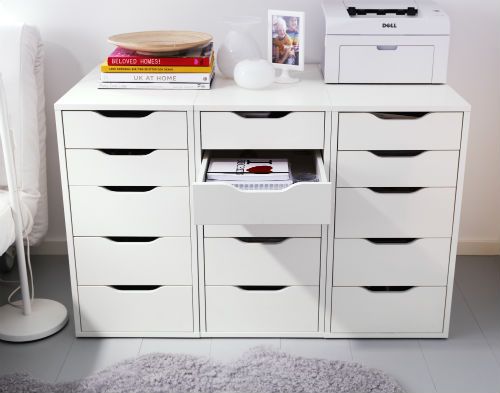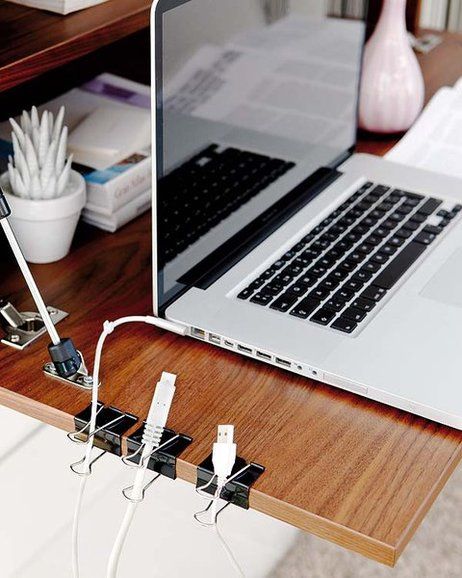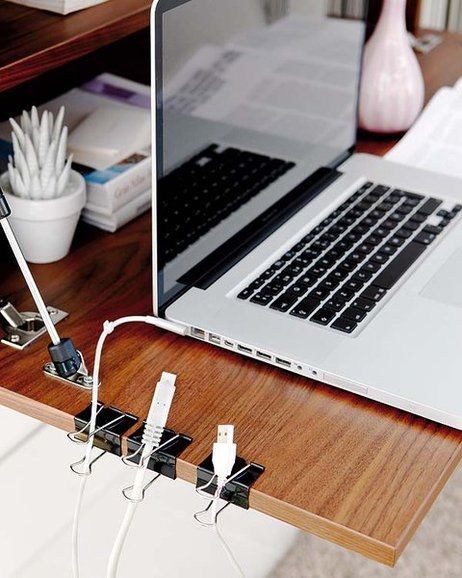Hello – welcome back! Or if you’re new here – welcome, pull up a chair and stay for a while. We’re passionate about all things ‘small business’. We’ve talked on the blog previously about ideas on how to create your dream office but this week we’re focusing on the practical side of things. Keeping your home office space organised is by no means easy – especially when you’re busy running a business. Here are a few things we think are essential to an organised and efficient space.
Drawers
It goes without saying that all businesses and home offices have one thing in common: paperwork. Unfortunately, there isn’t a magic trick to making it organise itself but luckily there are plenty of storage systems available these days that make it look a lot more appealing. Filing cabinets still have their place, but there are tons of drawer based solutions available too. We’re loving the look of this one from Ikea.

Shelves
Shelves are also great places to store paperwork, as long as it’s organised in an attractive way. Although, if you’re unlikely to want to put things back in their designated spot on the shelf it’s better to opt for a closed system. A row of sleek magazine files can look great, and you can also keep any books, ornaments or memorabilia relating to your business on them too. Just try to keep it minimal – when it comes to shelves, less is often more otherwise they can become hotspots for piles of receipts!

Pin Board
A pin board above your desk is a great addition to your home office. Perfect for popping up day-to-day reminders, or you can also use it to pin inspirational images or quotes. It’s the perfect spot for anything that’s going to make you smile when you’re sending invoices at 9.30pm.

Bull Dog Clips
This may sound random but organising your wires helps keep your desktop clear. And a clear, organised desk is proven to help with productivity. We found this hack online and recently implemented it in our home – it totally works! No more scrabbling around trying to match the cable with the device – they’re all at the side of the desk ready to go.

Desk Life
All home offices will need a desk or clear surface which you can work from, and often you will need to keep a few items on hand. Pens, pencils, note books, tape measures (!) you get the idea! Why not add a couple of nicer items to your desktop to inspire you to keep it clean and tidy? A nice
lamp, or a nice coaster for your morning coffee all help to create a work space that feels intentional. We all want to spend as little time as possible at our desks, but whilst you’re there you may as well enjoy the view.

What are your tips for creating an organised home office? Any tips and tricks for those pesky but oh-so-necessary receipts? Comment below – we would love to hear from you!
Team LP
Leave a comment on How To Organise Your Home OfficeCategories Business Tips, Office Designs, Small businesses




















